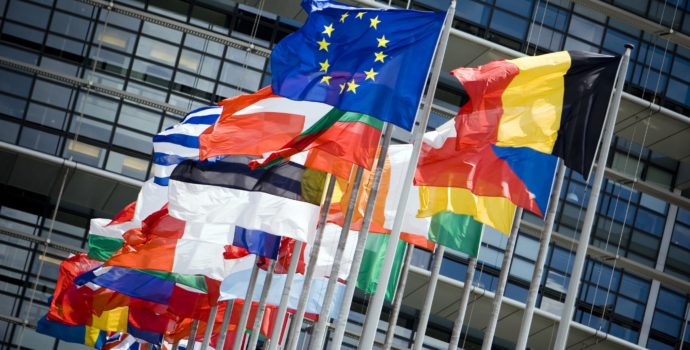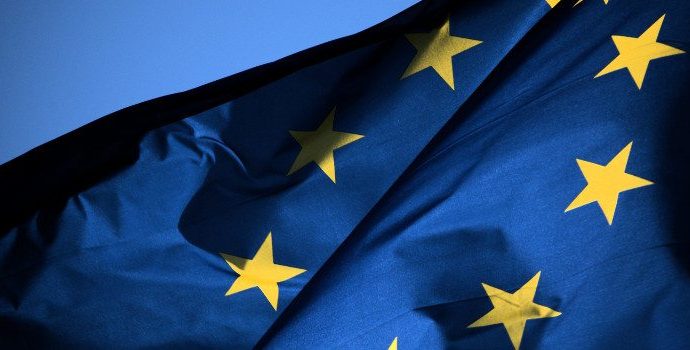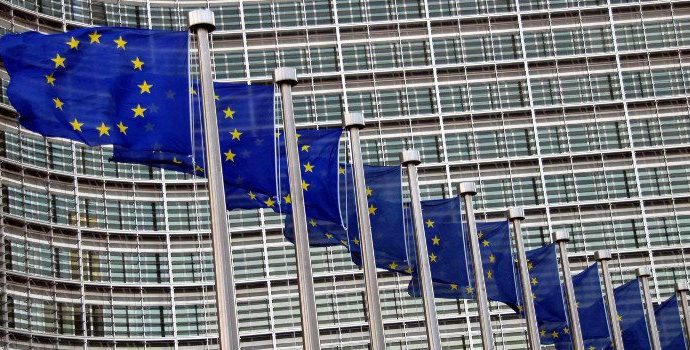European Commission Daily News 6th October

Agriculture: Commission adopts exceptional measures to support wine and fruit and vegetable sectors
Support measures for the wine sector adopted today include increasing support for risk management tools such as crop insurance and mutual funds, as well as extending until October 15, 2022 , the flexibility measures already in place. With regard to the fruit and vegetable sector, support for producer organizations – generally calculated on the basis of the value of production – will be compensated for which may not be less than 85% of the level of the production. ‘last year. Janusz Wojciechowski , Commissioner for Agriculture, said in this regard:“This year, extreme weather conditions, spring frosts, floods, then heat waves, put a strain on the wine and fruit and vegetable sectors. This situation comes after an already complicated year 2020 due to the COVID-19 crisis. These essential measures will come to the aid, in these difficult times, for producers across the EU, and in addition to those already proposed in 2020, then extended in 2021 . » A first set of measures was adopted in May 2020. These measures were supplemented by a second set of measures in favor of the wine sector adopted in July 2020. More information in the press release .
Commission welcomes the adoption of the Brexit Adjustment Reserve
The Commission welcomes the adoption and signature by the co-legislators of the Regulation establishing the Brexit Adjustment Reserve (BAR). With an amount of €5.4 billion in current prices, the BAR will counter the adverse consequences of the withdrawal of the United Kingdom from the EU for small and medium-sized companies, regional and local coastal communities in the EU. Commissioner for Cohesion and Reforms, Elisa Ferreira, said: “The BAR is a clear expression of European solidarity. The withdrawal of the United Kingdom from the EU has had significant adverse economic and social effects all across Europe. I am now happy to say that we have the legal basis to disburse the first amounts of pre-financing to help those most affected by Brexit.” All EU Member States will benefit from the BAR resources, but the allocation will be focused on those hardest hit by the UK’s withdrawal, especially with regard of trade with the UK, fisheries within the UK’s exclusive economic zone and the importance of neighbouring links for the maritime border regions with the UK. The largest part, €4.3 billion, will be disbursed as pre-financing in three annual instalments until 2023 while the remaining resources will be made available in 2025. To receive the first payments, Member States need to notify the Commission, within two months after the entry into force of the Regulation, the identity of the bodies responsible for the management and audit of the Reserve and confirm that they have drawn up the management and control system. On 25 December 2020, the Commission put forward its proposal for the creation of the BAR following the announcement of the European Council of 17-21 July 2020. The BAR Regulation will be published on 8 October in the Official Journal. All details are available here.
State aid: Commission invites interested parties to comment on the draft proposal aimed at further facilitating the implementation of aid measures promoting ecological and digital transition
The European Commission invites Member States and all other interested parties to comment on certain proposed amendments to the General Block Exemption Regulation (GBER).The aim of the proposed revision is to take into account the changes made to various sets of State aid guidelines under review and to further facilitate public support for the EU’s ecological and digital transition. The new rules will help lay the foundations for a sustainable economy when it comes to overcoming the consequences of the coronavirus pandemic. Member States and other interested parties can respond to the consultation until 8 December 2021. The Commission is proposing a number of targeted changes to the GBER to take into account changes to various sets of EU aid guidelines. ‘State under review (i.e. guidelines on regional state aid, the guidelines on state aid for the climate, energy and the environment, the guidelines on risk financing and the framework for state aid for research, development and ‘innovation). The aim of the ongoing review of these guidelines and the proposed review of the GBER is to promote public funding that contributes to the achievement of current EU priorities, in particular theGreen Deal and European industrial and digital strategies , and to ensure that state aid rules take into account the latest market and technological developments. Adoption of the revised GBER is scheduled for the first half of 2022. Margrethe Vestager, Executive Vice President for Competition Policy, said:“Our proposal aims to broaden the possibilities for Member States to implement aid measures in favor of the ecological and digital transition without prior notification to the Commission and prior authorization by the latter. This will make it easier and faster for Member States to provide this type of funding, without causing undue distortions of competition in the Single Market. We encourage all public authorities, businesses and other interested parties to participate in this important consultation. » A press release is available online .
Executive Vice-President Timmermans at EU-Indo-Pacific High Level Conference on Climate Change ahead of COP26
Tomorrow, 7 October, Executive Vice-President Frans Timmermans will participate in the High Level Conference on Climate Change between the EU and Indo-Pacific states, to discuss the forthcoming UN Climate Conference (COP26) in Glasgow. During the conference, which is one of the first events to implement the EU’s new Strategy for Cooperation in the Indo-Pacific, the EU and leaders of the Indo-Pacific countries will share views on their desired outcomes for COP26, specifically on mitigation, adaptation and finance. The EU’s action in the Indo-Pacific is based on a long-term plan to work with partners to mitigate and adapt to climate change, and reduce climate and disaster risks. On 8 October, the High Level Conference continues with civil society, media and business communities engaging in a series of panel discussions. More information about the conference is available here and it can be followed via livestream.
Read the European Commission daily news in full here.



